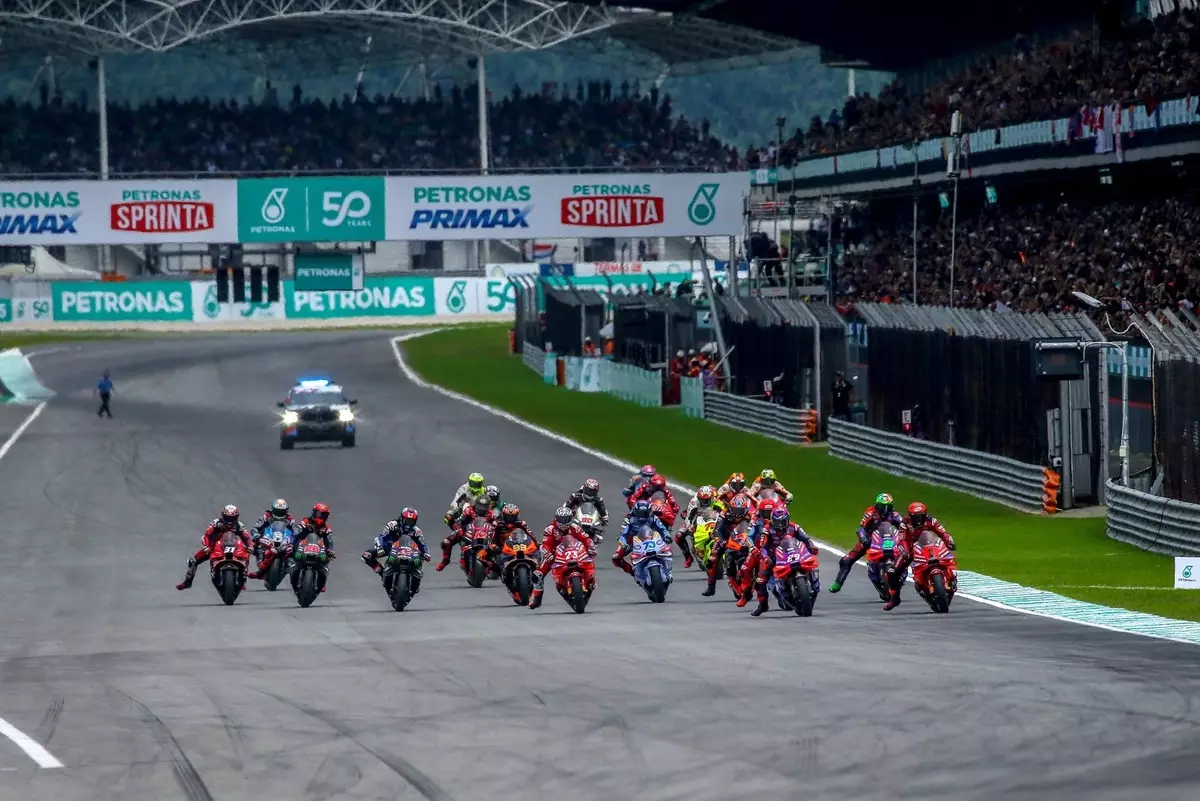The introduction of sprint races to the MotoGP calendar in 2023 marked a paradigm shift in how motorcycle racing weekends are structured. Challenging the long-standing traditions of the series, the sprint races have been met with mixed reactions from teams, riders, and fans alike. While many herald this change as a progressive step that adds excitement and intensity to race weekends, critics argue that it overshadows critical components like qualifying and adds undue pressure on teams and riders. The debate over this new format poses important questions about the sport’s direction and the implications for both competitors and audiences.
One of the most intriguing proposals surrounding the sprint race format has come from former KTM team manager Francesco Guidotti. In a recent interview, he suggested a novel approach to enhance the relevance of qualifying and provide a more streamlined weekend experience. Guidotti advocates that results from the sprint race should determine the starting grid for the main grand prix, thus reshaping how teams strategize through the weekend. His perspective is rooted in the existing practices seen in other motorcycle racing series like the World Superbike Championship, where the outcome of the sprint sets the stage for subsequent races.
This idea could fundamentally alter the stress levels traditionally associated with Saturday qualifying sessions. As it stands, the current MotoGP format places immense pressure on teams and riders to perform during qualifying. The transition from a full qualifying session straight into the sprint race only amplifies this stress. Guidotti’s proposal to unify qualifying sessions across Friday and Saturday could mitigate this pressure, allowing teams more time to refine their strategies without the immediate tension of an impending race.
Despite the heightened stakes surrounding qualifying in the current format, Guidotti highlights another pressing issue: the media’s waning interest in qualifying sessions. As sprint races draw more attention, qualifying has become a fleeting moment, overshadowed within the broader context of a busy Saturday schedule. Guidotti’s concerns indicate a shift in focus that could undermine the importance of securing a favorable starting position. Traditionally, weekend performances from qualifying through the main race have garnered sustained media scrutiny, setting the narrative for the entire event. Now, the narrative flickers momentarily, with focus shifting quickly to the sprint race, which diminishes the weight of the qualifying process.
Furthermore, Guidotti points out that for riders who do not qualify within the top nine, the sprint race holds little bearing on their competitive strategy. The lack of incentive for riders in lower qualifying positions may lead to a more conservative racing style, minimizing risks typically taken to gain valuable points. If riders know their finishing position solely impacts their standing in a race that does not influence the main event, the lack of urgency can stunt the overall excitement and competitiveness of the sprint race itself.
The proposition of linking sprint race outcomes to the main race grid poses a dual-edged sword. On one hand, it can incite more competitive driving among all riders, not just the elite, fostering a more engaging race environment. However, it could also induce overzealous maneuvers if riders feel pressured to capitalize on every opportunity. An increased awareness of possible penalties for sub-optimal positions might result in more cautious driving, potentially shunning the nail-biting, edge-of-your-seat racing MotoGP is renowned for.
Ultimately, these dynamics underscore an essential balancing act for MotoGP officials. The need to retain excitement and allure while ensuring fair competition and strategic depth remains pivotal as the sport evolves. As MotoGP continues down this path, the insights from figures like Guidotti will be crucial in shaping a race weekend format that balances pressure, strategy, and, most importantly, entertainment value.
As the MotoGP series navigates this transformative phase, the discussions surrounding sprint races exemplify the inherent challenges of innovation in traditional motorsport frameworks. While the concept brings an exciting twist to the weekend experience, it has raised legitimate concerns about the changing role of qualifying, strategic racing, and media focus. The potential adjustments proposed by stakeholders like Guidotti may pave the way for a more engaging and balanced approach to motorcycle racing—a path that maintains the sport’s thrilling core while accommodating new formats and audience expectations.


Napsat komentář